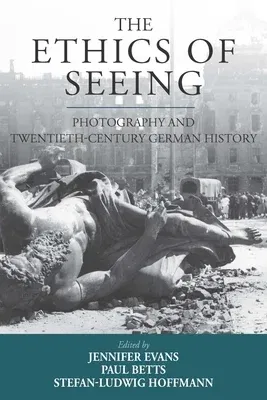The Ethics of Seeing: Photography and Twentieth-Century German HistoryPaperback, 12 July 2019

Qty
1
Turbo
Ships in 2 - 3 days
In Stock
Free Delivery
Cash on Delivery
15 Days
Free Returns
Secure Checkout

Part of Series
Studies in German History
Part of Series
Studies in German History, 21
Print Length
306 pages
Language
English
Publisher
Berghahn Books
Date Published
12 Jul 2019
ISBN-10
1789205182
ISBN-13
9781789205183
Description
Product Details
Book Format:
Paperback
Country of Origin:
US
Date Published:
12 July 2019
Dimensions:
22.86 x
15.24 x
1.63 cm
Genre:
Germany
ISBN-10:
1789205182
ISBN-13:
9781789205183
Language:
English
Location:
New York, NY
Pages:
306
Publisher:
Weight:
412.77 gm